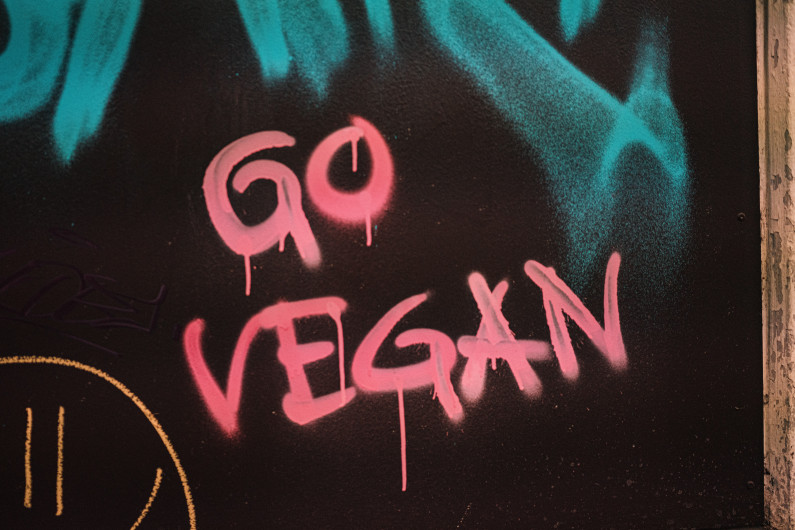At the start of the New Year, many people make ambitious resolutions about what they want to achieve in the coming year. Often these resolutions are about improving their health and general well-being. One trend that has gained momentum in recent years is ‘Veganuary’. Read on to find out what it is and how it can help you improve your health as well as help the environment.
Origin of the Veganuary
Veganuary is a movement started in 2014 by British couple Jane Land and Matthew Glover that encourages people to try a vegan diet for one month at the beginning of the year. The name Veganuary is a portmanteau of the words “vegan” and “January”, the month of the annual campaign.
The overall goal of the campaign is to raise awareness of the environmental, animal welfare and human health benefits of a vegan lifestyle and to provide support and resources to those who choose to participate. The campaign has since become a global movement, with people from all over the world taking part every year. According to official Veganuary data, 629,000 registered for Veganuary worldwide in 2022 – the actual figure is likely to be significantly higher.
Offers around Veganuary get more diverse
During the month of January, a number of brands in Germany are encouraging people to try vegan food with special offers and promotions. Lieferando, for example, has a Veganuary landing page to help people find suitable vegan offers in their own city. In addition, the delivery service, together with Jimi Blue Ochsenknecht and taste&soul, has developed the ‘Jimi Orange Bowl’ as the perfect introduction to the vegan experience.
Other companies, such as Perfeggt, which has developed a completely vegan egg, also offer great vegan alternatives that are very similar in taste and form to animal products. Rügenwalder Mühle, one of Germany’s best-known food manufacturers and the market leader in the vegan-vegetarian segment, has already achieved the highest turnover with meat-free products. In total, more than 420 companies in Germany took part in Veganuary last year.
The new product diversity is made possible by a range of new technologies that help give plant-based products meat-like sensory properties, making them more attractive to consumers. But technologies such as in vitro meat – meat produced through tissue engineering – can also play a key role in the move towards a slaughter-free future and the associated reduction in the environmental impact of animal farming.
Vegan and vegetarian diets as a long-term trend
The Veganuary movement is also part of a growing trend to be proactive about one’s diet and its socio-ecological consequences. And just as consumer awareness is changing, so too is the range of products and services offered by companies. According to Statista, global sales of plant-based meat alternatives will more than triple in the next four years alone (2022: $10 billion; 2027: $34 billion). So the market for plant-based diets is booming.
Benefits of a plant-based diet
One of the main benefits of a vegan diet is that it is generally lower in saturated fat, cholesterol and animal protein, which can help reduce the risk of heart disease and certain cancers. Studies have also shown that vegans tend to have a lower body mass index (BMI) than non-vegans.
A vegan lifestyle is also good for the environment. Animal agriculture is a major cause of greenhouse gas emissions, deforestation and water pollution. Those who choose a plant-based diet can also reduce their own carbon footprint and help conserve resources.
Preparing to go vegan
If you want to go vegan, there are a few things you need to keep in mind: Firstly, it is important to get enough protein, iron and other essential nutrients that are normally found in animal products. This can be done by eating a variety of plant foods such as legumes, nuts and fortified plant milks. It is also a good idea to do some research and meal planning. This should include trying out new recipes and finding suitable plant-based alternatives for favourite dishes. This can make the transition to a vegan diet more enjoyable and less overwhelming.
At PIABO, for example, we decided a few years ago – as part of our efforts to become a carbon neutral company – to take an intermediate step and only order vegetarian or vegan food, or use vegetarian food for everyday meals in the office. Our operations team takes great care when shopping to ensure that only products that meet these criteria end up in the fridge.
Conclusion
Taking part in the campaign does not mean that everyone has to change their diet immediately and permanently. Rather, it can be seen as a great opportunity, or a first step, to start thinking about vegan diets in particular and your own diet in general. Offers from different brands can help to get a first feel for vegan products and to perceive them as real alternatives for everyday life.


